Academics – NOT IN USE
To create a well-rounded summer or semester experience, all students enrolled in TFAS programs take courses for academic credit from George Mason University (GMU). Summer program students are required to take the 3-credit core class associated with their program track and are encouraged to enroll in elective classes for additional credits. Capital Semester students will be enrolled in 12 credits.
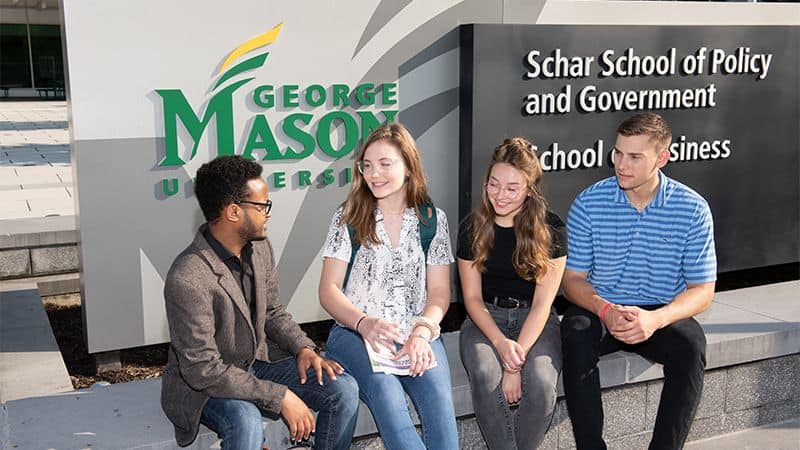
The courses are designed to complement your D.C. internship experience by offering a thorough examination of our free enterprise system and the economic way of thinking. Elective classes cover engaging topics such as American political thought, ethical leadership, or U.S. foreign policy.
Classes are held in George Mason University’s state-of-the-art-facilities, conveniently located a few metro stops away from student housing in nearby Arlington, Virginia. GMU was recently named one of the top 100 research universities in the U.S. by the Carnegie Classification of Institutions of Higher Education.
“This class has been a favorite of my academic career. It prompted stimulating discussions and gave me a different insight on economics.”
Paul Costas-Verlasco, University of Florida
Intern, Corazon Latino
A GMU transcript with grades may be requested from the registrar’s office upon completion of the program. We encourage you to consult your academic advisor and/or registrar’s office to determine how the classes may transfer back to your home institution. Course descriptions and sample syllabi are provided below.
Economics Problems and Public Policies (ECON 309) – 3 Credits
Public Policy + Economics summer program track students will be enrolled in ECON 309. This course meets on Tuesdays from 4:30 – 7:00pm and Fridays from 9:00 – 11:30am.
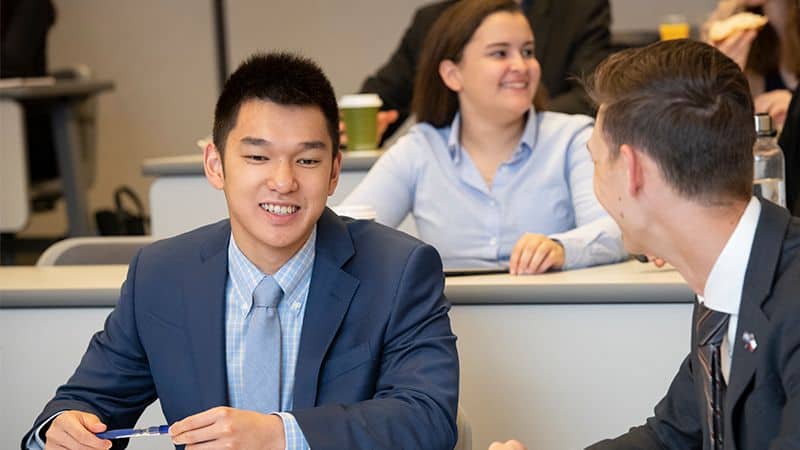
If you have not previously taken micro or macro economics and are interested in enrolling in a lower level course, or if you have already taken ECON 309 and would like to choose an alternative economics course please email Mary Stankus at mstankus@tfas.org to discuss your interest in enrolling in an alternative economics course.
“ECON 309 has been an eye-openinng experience. The lectures are a great exercise in economic thought that challenge my to approach public policy in a more practical way. As my roommate and I discussed and debated current events, I often found myself referring to the lectures and using the language of the economist make my points. This course has really equipped me with a set of tools that I look forward to using throughout my career.”
Ervin Bryant, Prairie View A&M University
Intern, National Campus Leadership Council
Course Description
This course introduces students to the role of economics in the context of policy-making. Students will learn how to apply economic thinking and analysis to a variety of public policy issues. Examples will be drawn from current Administration policy initiatives, government economic policy, and ongoing legislative battles in Congress. Students will examine basic economic concepts and the market economy. They will be introduced to public choice theory and analyze various policy issues through the lens of economics. Last summer’s syllabus may be found by clicking here.
Faculty
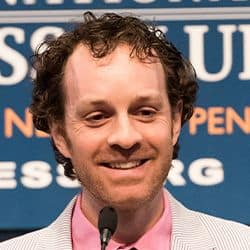
Chris Coyne, George Mason University
Professor, Economic Problems and public Policies
Christopher Coyne serves as the Director of Graduate Studies of the Department of Economics. He is an Associate Professor of Economics and F.A. Harper Professor of Economics at the Mercatus Center at George Mason University. He is also the North American Editor of The Review of Austrian Economics. In 2008, he was named the Hayek Fellow at the London School of Economics, and in 2010 he was a Visiting Scholar at the Social Philosophy & Policy Center at Bowling Green State University.
In 2016 Professor Coyne was recognized by George Mason University as the recipient of the University Teaching Excellence Award. The Teaching Excellence Awards are an acknowledgement of the significant work that faculty members devote to course planning and preparation; curriculum development; and innovative teaching, advising, and undergraduate and graduate mentoring. Colleagues and associates of Professor Coyne nominated him for this award in recognition of his outstanding contributions to teaching economics at the undergraduate and graduate levels as well as the mentoring he has provided many students.
Professor Coyne is the author of After War: The Political Economy of Exporting Democracy(2007, Stanford University Press), Media, Development and Institutional Change (co-authored with Peter Leeson, 2009, Edward Elgar Publishing), and the editor (with Rachel Mathers) ofThe Handbook on the Political Economy of War (2011, Edward Elgar Publishing).
Summer Optional Elective Courses
Maximize your time in Washington and enroll in 1-2 elective courses in addition to your core class! Choose the course(s) that best fit(s) your academic interests and background. Please note that some elective courses run concurrently, so be sure to review the course schedule before making selections.
Among the elective classes are two internship seminar sections. In addition to a 2-hour class meeting once a week, these courses provide credit for the internship experience through GMU. It is not required to take one of these courses to receive credit for your internship – please check with your home institution for their specific policy.
Course Description
This course is a must for any student wanting to closely examine U.S. foreign policy while they are living and working in the seat of our nation’s government. The discussion-based class provides historical and present-day perspectives on American foreign policy. It will examine how these views will influence the future of American diplomacy and global perception of the Unites States. During the course, students will be engaged in a series of “great episodes” in American foreign policy, aiming at relating them to current problems. The course will also examine national security policy since 9/11. This course is open to all students with an interest in foreign policy or international affairs. Please click here for this last summer’s syllabus.
Faculty
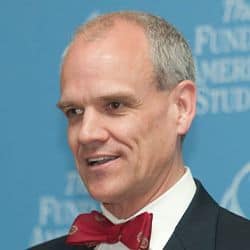
Gary T. Armstrong, William Jewell College
Professor, U.S. Foreign Policy
Gary T. Armstrong is Professor of Political Science at William Jewell College in Liberty, Missouri. He graduated summa cum laude with at BA from the University of Oklahoma and with a Ph.D. from Georgetown University. He has served as Research Assistant to Francis Fukuyama and Teaching Assistant to former US Secretary of State Madeleine Albright. His areas of specialty include American foreign and security policies, international relations theory, international conflict and war ethics, and international political economy. At William Jewell College, Armstrong served as the Chair of the Political Science Department from 1997-2001 and 2004-2007. He currently serves as the director of the International Relations Major and is Associate Dean of the Core Curriculum. Dr. Armstrong has been voted Professor of the Year by the student body four times during his tenure at William Jewell and is also an alumnus of the TFAS program.
Course Description
This course is the perfect complement to any internship in the nation’s capital – where politics and the federal government are front page news every day. This interactive course will explore the development of the American political tradition from the New England Puritan settlement to the Founding Era and the conclusion of the Civil War. The class will also examine how the role of government has changed, how people’s relationship to the government has evolved, and what this means for the future. Students will discuss the many ways in which Enlightenment liberalism developed alongside alternatives such as classical republicanism and Christianity. Students will explore these contradictory impulses in American political culture and discuss ways that they can be reconciled. Please click here for last summer’s syllabus.
Faculty

Richard Boyd, Georgetown University
Professor, American Political Thought
Richard Boyd is an associate professor of government at Georgetown University. His research interests include the intellectual history of liberalism, civil society and pluralism, economic and sociological theory, post-colonialism, and the theory and practice of immigration and citizenship policies in the United States. Before coming to Georgetown in 2007, Boyd taught at the University of Chicago, University of Pennsylvania, University of Wisconsin-Madison, and Deep Springs College.
Boyd is author of Uncivil Society: The Perils of Pluralism and the Making of Modern Liberalism. His articles have appeared in Review of Politics, Journal of Politics, Political Theory, History of Political Thought, Polity, European Journal of Political Theory, Urban Studies, Social Philosophy & Policy, and other journals. He is currently completing a book-length manuscript titled “Membership and Belonging: On the Boundaries of Liberal Political Theory.”
Course Description
Identified by some alumni as “the best college course they ever took,” this course is team-taught by professionals who specialize in the relationship between business and personal ethics. The course involves a hands-on learning process, including group activities, to demonstrate how power is defined in the professional world and how individual beliefs apply. Students work on creative team projects to analyze their moral beliefs and how they apply in the workplace. The course includes a two-day workshop designed to help students make the coursework personally meaningful and discover sources of their own empowerment through games and power exercises. Please click here for last summer’s syllabus.
Faculty
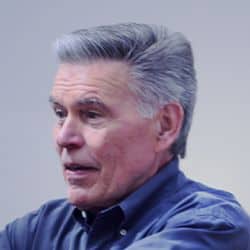
Michael J. Collins, Georgetown University
Professor, Ethics + Leadership
Dr. Collins began his tenure at Georgetown University in August 1981 as Dean of the School for Summer and Continuing Education. As Dean, Dr. Collins was responsible for administering the graduate and undergraduate courses offered each summer at Georgetown and locations abroad. He was also responsible for the various academic and residential programs at Villa Le Balze, Georgetown’s study center in Fiesole, Italy, and, for several years, the Office of International Programs.
In 2003, Dr. Collins was appointed Distinguished Professor in the Department of English and Dean Emeritus. He teaches courses on such subjects such as Shakespeare, the American Idea, and Modern British Theater in Georgetown College and the Liberal Studies Program. He also continues his responsibilities for the Villa Le Balze. He lectures frequently in American studies and on Shakespeare in performance, and he co-directs the annual alumni study tour to Florence and Assisi. He has published many articles on Shakespeare, modern poetry, and teaching and has edited two collections of essays: Text and Teaching (with Francis J. Ambrosio) and Shakespeare’s Sweet Thunder: Essays on the Early Comedies. Collins earned a Ph.D. (1973) and M.A. (1964) from New York University and a B.S. degree from Fordham College (1963). He served as a Captain in the United States Army from 1965 to 1968.
Course Description
Students will meet once a week for an interactive seminar that will examine the practical side of the workplace. Led by a former Congressional Chief of Staff and senior advisor at the Department of Labor, this course will explore current policy issues affecting professionals working in your field. High level guest speakers will cover pressing issues such as national security, Supreme Court cases and pending federal legislation. Students have priority access to professional development trainings that are designed to give you the tools to succeed in today’s workplace. The seminar is a graded course that incorporates required readings, written assignments, tests/quizzes, and group projects. All students are eligible to enroll in this optional course; enrollment is not required to participate in the program or an internship. Please click here for last summer’s syllabus.
Faculty
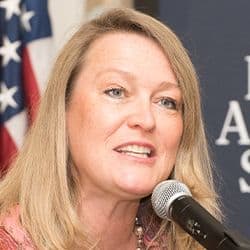
Karen Czarnecki, George Mason School of Law
Professor, Internship Seminar – Public Policy + International Affairs
Karen M. Czarnecki currently serves as the director of education at the Law and Economics Center at George Mason School of Law. Previously she served as the Chief of Staff to Rep. Mike Kelly and as a senior advisor to U.S. Secretary of Labor Elaine L. Chao. She joined the Labor Department in June of 2001, and in June 2003 she was appointed Director of the Office of the 21st Century Workforce. In addition, she served as Deputy Assistant Secretary of Labor for Intergovernmental Affairs, giving her responsibility for outreach to state and locally-elected officials. Czarnecki received her BA and juris doctorate degrees from Catholic University of America and is also an alumna of the Public Policy and Economics program.
Course Description
Students will meet once a week for an interactive seminar that will examine the media’s relationship to politics in the nation’s capital. Led by the founding White House correspondent for USA Today, this course will analyze current legal and ethical issues facing journalists and the people they report on. Students will discuss coverage of election campaigns and government institutions, primarily the presidency and Congress. Students have priority access to professional development trainings that are designed to give you the tools to succeed in today’s workplace. The seminar is a graded course that incorporates required readings, written assignments, tests/quizzes, and group projects. All students are eligible to enroll in this optional course; enrollment is not required to participate in the program or an internship. Please click here for last summer’s syllabus.
Faculty
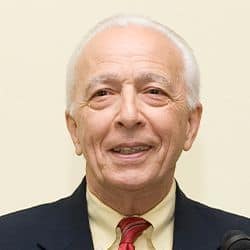
Richard Benedetto, American University
Professor, Internship Seminar – Politics and the Press
Richard Benedetto was the White House and national political correspondent for USA TODAY as well as a political columnist for Gannett News Service. He has reported on government and politics on the local, state and national levels for the past 34 years.
As a native of Utica, N.Y., Benedetto began his journalism career with the Buffalo, (N.Y.) Evening News, and held government reporting positions with the Utica Daily Press and Observer-Dispatch.
He also worked in the Albany bureau of Gannett News Service, covering state and government politics during the Governor Hugh Carey administration. He is a founding member of USA TODAY, joining the newspaper in Washington, D.C. in 1982, prior to its debut. He wrote the paper’s first front-page cover story on its initial day of publication. USA TODAY is now the nation’s largest newspaper. In addition to reporting on the White House and national politics, he writes a weekly political column for the Gannett News Service which serves the Gannett Company Inc.’s 102 daily newspapers. The column also appears on the USATODAY.com website.
He has covered the administrations of Ronald Reagan, George H. W. Bush, Bill Clinton and George W. Bush. He also has covered the presidential campaigns of 1984, 1988, 1992, 1996, 2000 and 2004.
Guest Lectures
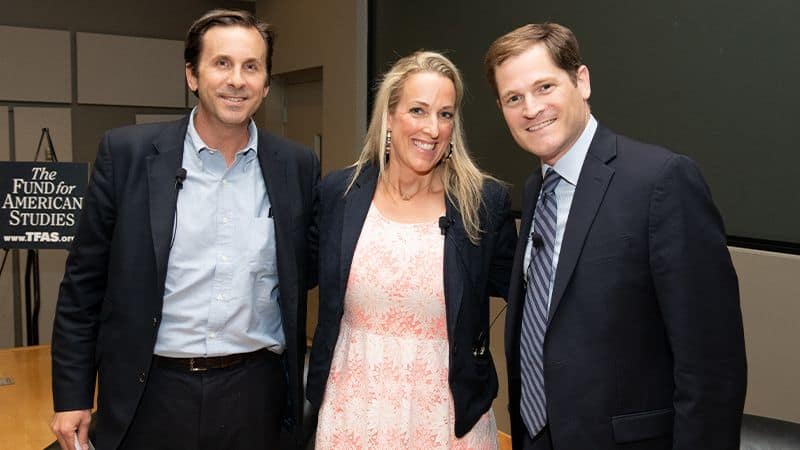
Weekly guest lectures give you a chance to learn, question, and often, exchange business cards with some of the best public policy experts and political minds in DC.
These lectures are designed to complement what you are learning in your classes and internship. Covering a wide variety of topics, the events are lively, interactive, and challenging.
Sample guest lecture topics and speakers have included:
- The Chilean Experience: Defeating Poverty with Liberty: Jose Pinera, former Chilean Minister of Labor and Social Security
- 2020 Polling + the Presidential Outlook: Chris Wilson, CEO of WPA Intelligence
- State vs. Federal Government: Kevin Turner, Overseas Private investment Corporation
- Tackling National Debt + the Federal Deficit Debate: Seth Hanlon, Center for American Progress + John Tamny, FreedomWorks
- Immigration Policy: Alex Nowrasteh, Cato Institute
- Tariffs and American Jobs Debate: Alan Tonelson, Founder, RealityChek and Donald Boudreaux , GMU
- Leadership and Character in Policy-making: David Bobb, Bill of Rights Institute
- National Security Strategy and Resourcing: Colonel John W. Wagner, National Defense University
- Supreme Court Roundup: Ilya Shapiro, Cato Institute
Core Course: Economies in Transition (ECON 380) – 3 Credits
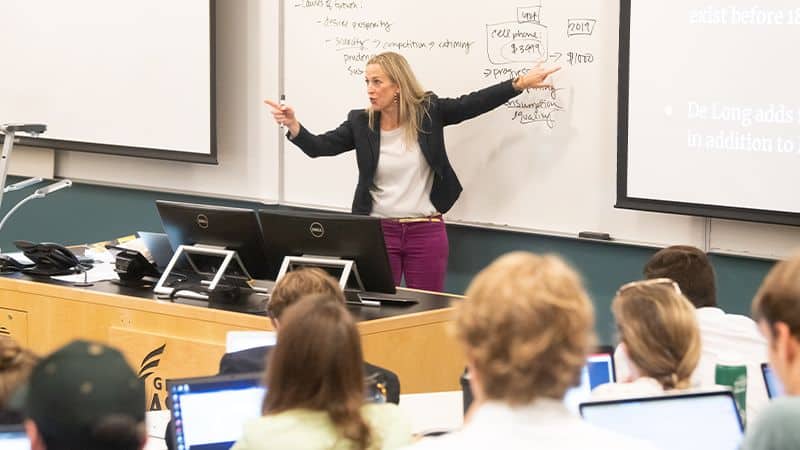
International Affairs summer program track students will be enrolled in ECON 380. This course meets on Tuesdays from 4:30 – 7:00pm and Fridays from 9:00 – 11:30am.
If you have not previously taken micro or macro economics and are interested in enrolling in a lower level course, or if you have already taken ECON 380 and would like to choose an alternative economics course, please email Mary Stankus at mstankus@tfas.org to discuss your interest in enrolling in an alternative economics course.
“I feel like I’ve gained another lens through which to see the world. It’s changed the way I think about the problems that we’re currently facing and forced me to reevaluate my political philosophy. I’ve really enjoyed being challenged and I wish I had more time with these professors.”
Lydia Laramore, Spelman College
Intern, Association for Diplomatic Studies & Training
Course Description
In this international economics course, students will examines problems and achievements of formerly communist and socialist countries including China, Eastern European countries, and Russia and other countries of the former Soviet Union as they transition to more market-oriented economies. Includes market economics and central planning. A sample syllabus will be available very soon.
Faculty
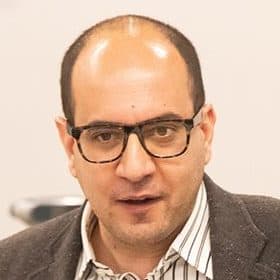
Rosolino Candela, George Mason University
Professor, Economies in Transition
Rosolino Candela is a Senior Research Fellow and Associate Director of Academic and Student Programs, as well as a Senior Fellow of the F.A. Hayek Program for Advanced Study in Philosophy, Politics and Economics at the Mercatus Center.
Prior to George Mason University, Candela taught in the Department of Economics at Brown University, where he was also a Postdoctoral Research Associate in the Political Theory Project. He was also a Visiting Professor of Economics at Universidad Francisco Marroquin, and a Visiting Fellow in the Department of Political and Social Sciences at the European University Institute.
In 2016 and 2019, Candela was nominated for the George Mason University Career Connection Faculty Award.
Summer Optional Elective Courses
Maximize your time in Washington and enroll in 1-2 elective courses in addition to your core class! Choose the course(s) that best fit(s) your academic interests and background. Please note that some elective courses run concurrently, so be sure to review the course schedule before making selections.
Among the elective classes are two internship seminar sections. In addition to a 2-hour class meeting once a week, these courses provide credit for the internship experience through GMU. It is not required to take one of these courses to receive credit for your internship – please check with your home institution for their specific policy.
Course Description
This course is a must for any student wanting to closely examine U.S. foreign policy while they are living and working in the seat of our nation’s government. The discussion-based class provides historical and present-day perspectives on American foreign policy. It will examine how these views will influence the future of American diplomacy and global perception of the Unites States. During the course, students will be engaged in a series of “great episodes” in American foreign policy, aiming at relating them to current problems. The course will also examine national security policy since 9/11. This course is open to all students with an interest in foreign policy or international affairs. Please click here for this last summer’s syllabus.
Faculty

Gary T. Armstrong, William Jewell College
PROFESSOR, U.S. FOREIGN POLICY
Gary T. Armstrong is Professor of Political Science at William Jewell College in Liberty, Missouri. He graduated summa cum laude with at BA from the University of Oklahoma and with a Ph.D. from Georgetown University. He has served as Research Assistant to Francis Fukuyama and Teaching Assistant to former US Secretary of State Madeleine Albright. His areas of specialty include American foreign and security policies, international relations theory, international conflict and war ethics, and international political economy. At William Jewell College, Armstrong served as the Chair of the Political Science Department from 1997-2001 and 2004-2007. He currently serves as the director of the International Relations Major and is Associate Dean of the Core Curriculum. Dr. Armstrong has been voted Professor of the Year by the student body four times during his tenure at William Jewell and is also an alumnus of the TFAS program.
Course Description
This course is the perfect complement to any internship in the nation’s capital – where politics and the federal government are front page news every day. This interactive course will explore the development of the American political tradition from the New England Puritan settlement to the Founding Era and the conclusion of the Civil War. The class will also examine how the role of government has changed, how people’s relationship to the government has evolved, and what this means for the future. Students will discuss the many ways in which Enlightenment liberalism developed alongside alternatives such as classical republicanism and Christianity. Students will explore these contradictory impulses in American political culture and discuss ways that they can be reconciled. Please click here for last summer’s syllabus.
Faculty

Richard Boyd, Georgetown University
PROFESSOR, AMERICAN POLITICAL THOUGHT
Richard Boyd is an associate professor of government at Georgetown University. His research interests include the intellectual history of liberalism, civil society and pluralism, economic and sociological theory, post-colonialism, and the theory and practice of immigration and citizenship policies in the United States. Before coming to Georgetown in 2007, Boyd taught at the University of Chicago, University of Pennsylvania, University of Wisconsin-Madison, and Deep Springs College.
Boyd is author of Uncivil Society: The Perils of Pluralism and the Making of Modern Liberalism. His articles have appeared in Review of Politics, Journal of Politics, Political Theory, History of Political Thought, Polity, European Journal of Political Theory, Urban Studies, Social Philosophy & Policy, and other journals. He is currently completing a book-length manuscript titled “Membership and Belonging: On the Boundaries of Liberal Political Theory.”
Course Description
Identified by some alumni as “the best college course they ever took,” this course is team-taught by professionals who specialize in the relationship between business and personal ethics. The course involves a hands-on learning process, including group activities, to demonstrate how power is defined in the professional world and how individual beliefs apply. Students work on creative team projects to analyze their moral beliefs and how they apply in the workplace. The course includes a two-day workshop designed to help students make the coursework personally meaningful and discover sources of their own empowerment through games and power exercises. Please click here for last summer’s syllabus.
Faculty

Michael J. Collins, Georgetown University
PROFESSOR, ETHICS + LEADERSHIP
Dr. Collins began his tenure at Georgetown University in August 1981 as Dean of the School for Summer and Continuing Education. As Dean, Dr. Collins was responsible for administering the graduate and undergraduate courses offered each summer at Georgetown and locations abroad. He was also responsible for the various academic and residential programs at Villa Le Balze, Georgetown’s study center in Fiesole, Italy, and, for several years, the Office of International Programs.
In 2003, Dr. Collins was appointed Distinguished Professor in the Department of English and Dean Emeritus. He teaches courses on such subjects such as Shakespeare, the American Idea, and Modern British Theater in Georgetown College and the Liberal Studies Program. He also continues his responsibilities for the Villa Le Balze. He lectures frequently in American studies and on Shakespeare in performance, and he co-directs the annual alumni study tour to Florence and Assisi. He has published many articles on Shakespeare, modern poetry, and teaching and has edited two collections of essays: Text and Teaching (with Francis J. Ambrosio) and Shakespeare’s Sweet Thunder: Essays on the Early Comedies. Collins earned a Ph.D. (1973) and M.A. (1964) from New York University and a B.S. degree from Fordham College (1963). He served as a Captain in the United States Army from 1965 to 1968.
Course Description
Students will meet once a week for an interactive seminar that will examine the practical side of the workplace. Led by a former Congressional Chief of Staff and senior advisor at the Department of Labor, this course will explore current policy issues affecting professionals working in your field. High level guest speakers will cover pressing issues such as national security, Supreme Court cases and pending federal legislation. Students have priority access to professional development trainings that are designed to give you the tools to succeed in today’s workplace. The seminar is a graded course that incorporates required readings, written assignments, tests/quizzes, and group projects. All students are eligible to enroll in this optional course; enrollment is not required to participate in the program or an internship. Please click here for last summer’s syllabus.
Faculty

Karen Czarnecki, George Mason School of Law
PROFESSOR, INTERNSHIP SEMINAR – PUBLIC POLICY + INTERNATIONAL AFFAIRS
Karen M. Czarnecki currently serves as the director of education at the Law and Economics Center at George Mason School of Law. Previously she served as the Chief of Staff to Rep. Mike Kelly and as a senior advisor to U.S. Secretary of Labor Elaine L. Chao. She joined the Labor Department in June of 2001, and in June 2003 she was appointed Director of the Office of the 21st Century Workforce. In addition, she served as Deputy Assistant Secretary of Labor for Intergovernmental Affairs, giving her responsibility for outreach to state and locally-elected officials. Czarnecki received her BA and juris doctorate degrees from Catholic University of America and is also an alumna of the Public Policy and Economics program.
Course Description
Students will meet once a week for an interactive seminar that will examine the media’s relationship to politics in the nation’s capital. Led by the founding White House correspondent for USA Today, this course will analyze current legal and ethical issues facing journalists and the people they report on. Students will discuss coverage of election campaigns and government institutions, primarily the presidency and Congress. Students have priority access to professional development trainings that are designed to give you the tools to succeed in today’s workplace. The seminar is a graded course that incorporates required readings, written assignments, tests/quizzes, and group projects. All students are eligible to enroll in this optional course; enrollment is not required to participate in the program or an internship. Please click here for last summer’s syllabus.
Faculty

Richard Benedetto, American University
PROFESSOR, INTERNSHIP SEMINAR – POLITICS AND THE PRESS
Richard Benedetto was the White House and national political correspondent for USA TODAY as well as a political columnist for Gannett News Service. He has reported on government and politics on the local, state and national levels for the past 34 years.
As a native of Utica, N.Y., Benedetto began his journalism career with the Buffalo, (N.Y.) Evening News, and held government reporting positions with the Utica Daily Press and Observer-Dispatch.
He also worked in the Albany bureau of Gannett News Service, covering state and government politics during the Governor Hugh Carey administration. He is a founding member of USA TODAY, joining the newspaper in Washington, D.C. in 1982, prior to its debut. He wrote the paper’s first front-page cover story on its initial day of publication. USA TODAY is now the nation’s largest newspaper. In addition to reporting on the White House and national politics, he writes a weekly political column for the Gannett News Service which serves the Gannett Company Inc.’s 102 daily newspapers. The column also appears on the USATODAY.com website.
He has covered the administrations of Ronald Reagan, George H. W. Bush, Bill Clinton and George W. Bush. He also has covered the presidential campaigns of 1984, 1988, 1992, 1996, 2000 and 2004.
Guest Lectures
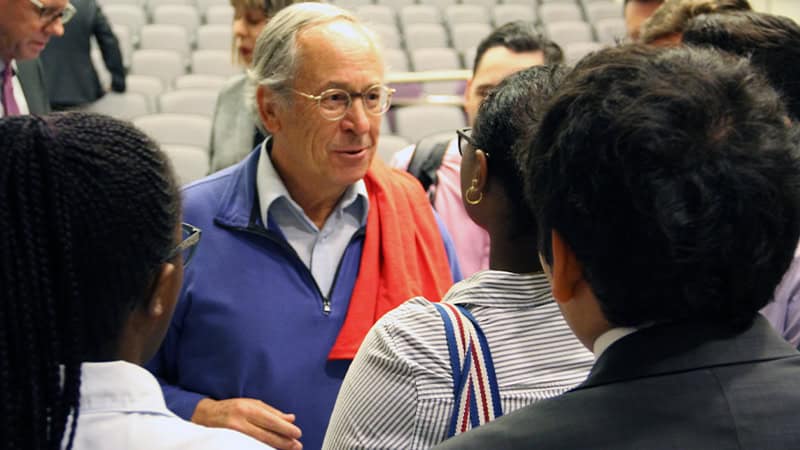
Weekly guest lectures give you a chance to learn, question, and often, exchange business cards with some of the best foreign policy experts and diplomats in DC.
These lectures are designed to complement what you are learning in your classes and internship. Covering a wide variety of topics, the events are lively, interactive, and challenging.
Sample guest lecture topics and speakers have included:
- Restraint vs. Primacy in U.S. Foreign Policy: Robert Lieber, Professor of Government and International Affairs, Georgetown University
- Constitutional and Legal Issues in U.S. Foreign Policy: Chris Preble, Vice President for Defense and Foreign Policy, Cato Institute
- The Economics of U.S. Foreign Policy: Linda Bilmes, Daniel Patrick Moynihan Senior Lecturer in Public Policy, Harvard Kennedy School
- The Chilean Experience: Defeating Poverty with Liberty: Jose Pinera, former Chilean Minister of Labor and Social Security
- US-Russia Foreign Policy: David Satter, Senior Fellow, Hudson Institute + Thomas Wright, Director, Center on the U.S. and Europe, Brookings Institution
- US-China Policy: Abigail Grace, Research Associate, Asia-Pacific Security Program, Center for New American Security + Harry Kazianis, Director of Defense Studies, Center for the National Interest + Alison Szalwinski, Director of Political and Security Affairs, National Bureau of Asian Research
- US-Iran Policy: Tzvi Kahn, Senior Iran Analyst, Foundation for Defense of Democracies + Emma Ashford, Research Fellow, Cato Institute
- Afghanistan Policy: Gilman Barndollar, Military Fellow-in-Residence, Catholic University of America
- Syria in Review: Faysal Itani, Senior Fellow, Atlantic Council
- Escaping North Korea: Grace Jo, Vice President, North Korea in USA
Core Course: Economics for the Citizen (ECON 100) – 3 Credits
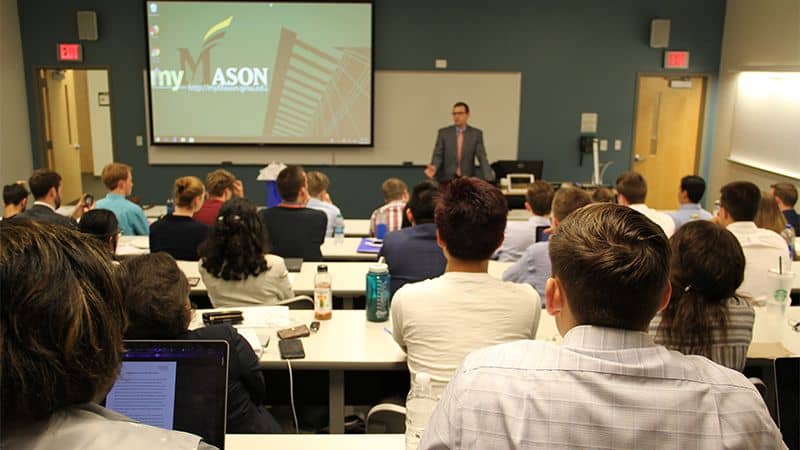
Journalism + Communications summer program track students will be enrolled in ECON 100. This course meets on Tuesdays from 4:30 – 7:00pm and Fridays from 9:00 – 11:30am.
Students who have already taken a lower level economics course may enroll in one of the upper level courses offered. Please email Mary Stankus at mstankus@tfas.org to discuss your interest in enrolling in an alternative economics course.
“The class, taught by Dr. Donald Boudreaux, has been enriching. Before this class, I had never taken an economics course before, and I feel that the material taught to me in this course has opened my eyes to a completely different perspective, an economic perspective that I had not been taking account of.”
Daniel Zeidan Western Kentuckey University
Intern, The Department of Education
Couse Description
This course presents lectures and case studies to give aspiring journalists a clear understanding of free-market economic principles necessary to report news stories. The course is taught by an economist with weekly guest lectures by the former White House Correspondent for USA Today. The course will examine economic policy and how it relates to reporting accurate news stories. Students will learn about the inter-related nature of politics and economics and will learn to think critically about society, the market, and government. Please click here for last summer’s syllabus.
Faculty
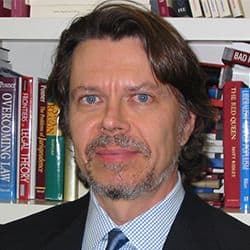
Donald Boudreaux, George Mason University
Professor, Economics for the Citizen
Professor Donald J. Boudreaux was the Chairman of the Department of Economics at George Mason University in Fairfax, Virginia, from August 2001 to August 2009. Previously, he was president of the Foundation for Economic Education (1997-2001), Associate Professor of Legal Studies and Economics at Clemson University (1992-1997), and Assistant Professor of Economics at George Mason University (1985-1989).
During the Spring of 1996 semester he was an Olin Visiting Fellow in Law and Economics at the Cornell Law School. He earned his PhD in economics from Auburn University (1986) and his law degree from the University of Virginia (1992).
He has lectured, in the United States, Canada, Latin America, and Europe, on a wide variety of topics, including the nature of law, antitrust law and economics, and international trade. He is published in The Wall Street Journal, Investor’s Business Daily, Regulation, Reason, Ideas on Liberty, The Washington Times, The Journal of Commerce, the Cato Journal, and several scholarly journals such as the Supreme Court Economic Review, Southern Economic Journal, Antitrust Bulletin, and Journal of Money, Credit, and Banking.
Summer Optional Elective Courses
Maximize your time in Washington and enroll in 1-2 elective courses in addition to your core class! Choose the course(s) that best fit(s) your academic interests and background. Please note that some elective courses run concurrently, so be sure to review the course schedule before making selections.
Among the elective classes are two internship seminar sections. In addition to a 2-hour class meeting once a week, these courses provide credit for the internship experience through GMU. It is not required to take one of these courses to receive credit for your internship – please check with your home institution for their specific policy.
Course Description
This course is a must for any student wanting to closely examine U.S. foreign policy while they are living and working in the seat of our nation’s government. The discussion-based class provides historical and present-day perspectives on American foreign policy. It will examine how these views will influence the future of American diplomacy and global perception of the Unites States. During the course, students will be engaged in a series of “great episodes” in American foreign policy, aiming at relating them to current problems. The course will also examine national security policy since 9/11. This course is open to all students with an interest in foreign policy or international affairs. Please click here for this last summer’s syllabus.
Faculty

Gary T. Armstrong, William Jewell College
PROFESSOR, U.S. FOREIGN POLICY
Gary T. Armstrong is Professor of Political Science at William Jewell College in Liberty, Missouri. He graduated summa cum laude with at BA from the University of Oklahoma and with a Ph.D. from Georgetown University. He has served as Research Assistant to Francis Fukuyama and Teaching Assistant to former US Secretary of State Madeleine Albright. His areas of specialty include American foreign and security policies, international relations theory, international conflict and war ethics, and international political economy. At William Jewell College, Armstrong served as the Chair of the Political Science Department from 1997-2001 and 2004-2007. He currently serves as the director of the International Relations Major and is Associate Dean of the Core Curriculum. Dr. Armstrong has been voted Professor of the Year by the student body four times during his tenure at William Jewell and is also an alumnus of the TFAS program.
Course Description
This course is the perfect complement to any internship in the nation’s capital – where politics and the federal government are front page news every day. This interactive course will explore the development of the American political tradition from the New England Puritan settlement to the Founding Era and the conclusion of the Civil War. The class will also examine how the role of government has changed, how people’s relationship to the government has evolved, and what this means for the future. Students will discuss the many ways in which Enlightenment liberalism developed alongside alternatives such as classical republicanism and Christianity. Students will explore these contradictory impulses in American political culture and discuss ways that they can be reconciled. Please click here for last summer’s syllabus.
Faculty

Richard Boyd, Georgetown University
PROFESSOR, AMERICAN POLITICAL THOUGHT
Richard Boyd is an associate professor of government at Georgetown University. His research interests include the intellectual history of liberalism, civil society and pluralism, economic and sociological theory, post-colonialism, and the theory and practice of immigration and citizenship policies in the United States. Before coming to Georgetown in 2007, Boyd taught at the University of Chicago, University of Pennsylvania, University of Wisconsin-Madison, and Deep Springs College.
Boyd is author of Uncivil Society: The Perils of Pluralism and the Making of Modern Liberalism. His articles have appeared in Review of Politics, Journal of Politics, Political Theory, History of Political Thought, Polity, European Journal of Political Theory, Urban Studies, Social Philosophy & Policy, and other journals. He is currently completing a book-length manuscript titled “Membership and Belonging: On the Boundaries of Liberal Political Theory.”
Course Description
Identified by some alumni as “the best college course they ever took,” this course is team-taught by professionals who specialize in the relationship between business and personal ethics. The course involves a hands-on learning process, including group activities, to demonstrate how power is defined in the professional world and how individual beliefs apply. Students work on creative team projects to analyze their moral beliefs and how they apply in the workplace. The course includes a two-day workshop designed to help students make the coursework personally meaningful and discover sources of their own empowerment through games and power exercises. Please click here for last summer’s syllabus.
Faculty

Michael J. Collins, Georgetown University
PROFESSOR, ETHICS + LEADERSHIP
Dr. Collins began his tenure at Georgetown University in August 1981 as Dean of the School for Summer and Continuing Education. As Dean, Dr. Collins was responsible for administering the graduate and undergraduate courses offered each summer at Georgetown and locations abroad. He was also responsible for the various academic and residential programs at Villa Le Balze, Georgetown’s study center in Fiesole, Italy, and, for several years, the Office of International Programs.
In 2003, Dr. Collins was appointed Distinguished Professor in the Department of English and Dean Emeritus. He teaches courses on such subjects such as Shakespeare, the American Idea, and Modern British Theater in Georgetown College and the Liberal Studies Program. He also continues his responsibilities for the Villa Le Balze. He lectures frequently in American studies and on Shakespeare in performance, and he co-directs the annual alumni study tour to Florence and Assisi. He has published many articles on Shakespeare, modern poetry, and teaching and has edited two collections of essays: Text and Teaching (with Francis J. Ambrosio) and Shakespeare’s Sweet Thunder: Essays on the Early Comedies. Collins earned a Ph.D. (1973) and M.A. (1964) from New York University and a B.S. degree from Fordham College (1963). He served as a Captain in the United States Army from 1965 to 1968.
Course Description
Students will meet once a week for an interactive seminar that will examine the practical side of the workplace. Led by a former Congressional Chief of Staff and senior advisor at the Department of Labor, this course will explore current policy issues affecting professionals working in your field. High level guest speakers will cover pressing issues such as national security, Supreme Court cases and pending federal legislation. Students have priority access to professional development trainings that are designed to give you the tools to succeed in today’s workplace. The seminar is a graded course that incorporates required readings, written assignments, tests/quizzes, and group projects. All students are eligible to enroll in this optional course; enrollment is not required to participate in the program or an internship. Please click here for last summer’s syllabus.
Faculty

Karen Czarnecki, George Mason School of Law
PROFESSOR, INTERNSHIP SEMINAR – PUBLIC POLICY + INTERNATIONAL AFFAIRS
Karen M. Czarnecki currently serves as the director of education at the Law and Economics Center at George Mason School of Law. Previously she served as the Chief of Staff to Rep. Mike Kelly and as a senior advisor to U.S. Secretary of Labor Elaine L. Chao. She joined the Labor Department in June of 2001, and in June 2003 she was appointed Director of the Office of the 21st Century Workforce. In addition, she served as Deputy Assistant Secretary of Labor for Intergovernmental Affairs, giving her responsibility for outreach to state and locally-elected officials. Czarnecki received her BA and juris doctorate degrees from Catholic University of America and is also an alumna of the Public Policy and Economics program.
Course Description
Students will meet once a week for an interactive seminar that will examine the media’s relationship to politics in the nation’s capital. Led by the founding White House correspondent for USA Today, this course will analyze current legal and ethical issues facing journalists and the people they report on. Students will discuss coverage of election campaigns and government institutions, primarily the presidency and Congress. Students have priority access to professional development trainings that are designed to give you the tools to succeed in today’s workplace. The seminar is a graded course that incorporates required readings, written assignments, tests/quizzes, and group projects. All students are eligible to enroll in this optional course; enrollment is not required to participate in the program or an internship. Please click here for last summer’s syllabus.
Faculty

Richard Benedetto, American University
PROFESSOR, INTERNSHIP SEMINAR – POLITICS AND THE PRESS
Richard Benedetto was the White House and national political correspondent for USA TODAY as well as a political columnist for Gannett News Service. He has reported on government and politics on the local, state and national levels for the past 34 years.
As a native of Utica, N.Y., Benedetto began his journalism career with the Buffalo, (N.Y.) Evening News, and held government reporting positions with the Utica Daily Press and Observer-Dispatch.
He also worked in the Albany bureau of Gannett News Service, covering state and government politics during the Governor Hugh Carey administration. He is a founding member of USA TODAY, joining the newspaper in Washington, D.C. in 1982, prior to its debut. He wrote the paper’s first front-page cover story on its initial day of publication. USA TODAY is now the nation’s largest newspaper. In addition to reporting on the White House and national politics, he writes a weekly political column for the Gannett News Service which serves the Gannett Company Inc.’s 102 daily newspapers. The column also appears on the USATODAY.com website.
He has covered the administrations of Ronald Reagan, George H. W. Bush, Bill Clinton and George W. Bush. He also has covered the presidential campaigns of 1984, 1988, 1992, 1996, 2000 and 2004.
Guest Lectures
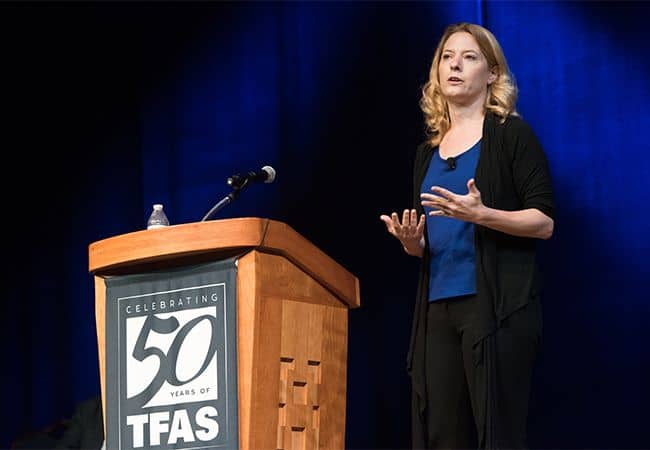
Weekly guest lectures give you a chance to learn, question, and often exchange business cards with some of the best journalists, public relations, and communications experts DC.
These lectures are designed to complement what you are learning in your classes and internship. Covering a wide variety of topics, the events are lively, interactive, and challenging.
Sample guest lecture topics and speakers have included:
- Life of a Foreign Correspondent: Suzanne Kianpour, BBC News
- Reporting from a War Zone: Christian Galdabini, Freelance Photographer
- The ABC’s of Covering Capitol Hill: Matt Laslo Capitol Hill Reporter
- The White House Beat: Francesca Chambers, The Daily Mail and Jenny Vazquez WRC TV NBC 4
- Covering the 9-11 Attacks in NYC: A Reporter’s Story: Clemente Lisi, Professor at King’s College & Former New York Post Reporter
- The Military and Defense Beat: Haley Britzky, Task & Purpose Magazine and Sarah Sicard, Defense News
- From News to Talk: The Expansion of Opinion and Commentary in U.S. Journalism: Professor Kimberly Meltzer, Marymount University
- How to Cover Economic and Business Stories: John Merline, Investor’s Business Daily
- PR Options in Washington, D.C.: Randy DeCleene, kglobal
- How to Succeed in Journalism and in Life : Jim Forbes, Director of Communications, Prison Fellowship Ministries
Core Course: Public Choice Economics (ECON 410) – 3 Credits
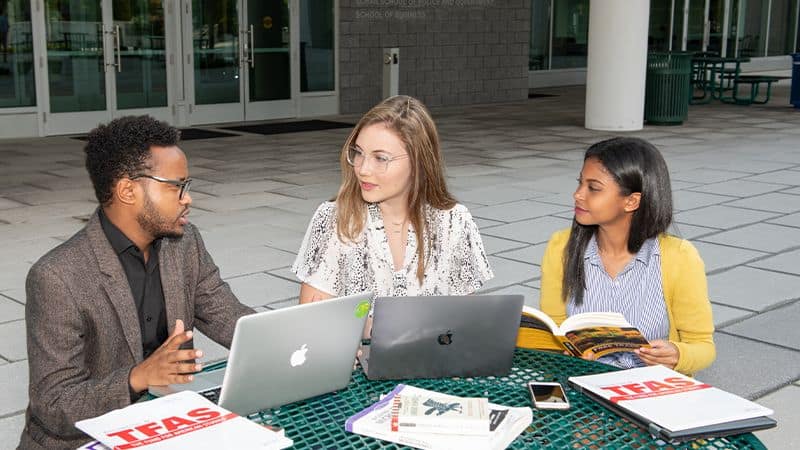
Business + Government Relations summer program track students will be enrolled in ECON 410. This course meets on Tuesdays from 4:30 – 7:00pm and Fridays from 9:00 – 11:30am.
If you have not previously taken micro or macro economics and are interested in enrolling in a lower level course, or if you have already taken ECON 410 and would like to choose an alternative economics course, please email Mary Stankus at mstankus@tfas.org to discuss your interest in enrolling in an alternative economics course.
“It’s been interesting to see the tie-in between my internship and my classes, particularly my economics class. I’ll learn about some aspect of regulation on a Tuesday night right before it pops up in a meeting on Wednesday morning. I was a little nervous about taking an economics class, as it was new territory me, but the real-world applications of the concepts discussed in class have completely calmed any fears about it.”
Seth Powers, Eureka College
Intern, American Forest and Paper Association
Course Description
Public choice economics uses the tools of economic analysis to better understand policy, politics, and collective decision making. This course will provide an overview of the insights and limitations of the public choice perspective in the context of electoral politics, legislation, bureaucracy and regulation, and constitutional rule-making. An understanding of public choice economics will enable students to critically evaluate political actions and outcomes in a way that goes beyond ideological or ‘great man’ theories of politics. Instead, by focusing on the incentive structures within which political decisions are made, public choice economics facilitates the development of a more nuanced understanding of the behavior of voters, legislators, judges, and other political agents. Please click here for last summer’s syllabus.
Faculty
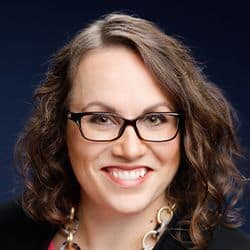
Jayme Lemke, Mercatus Center at George Mason University
Professor, Public Choice Economics
Jayme Lemke (Ph.D., Economics, George Mason University) is a Senior Research Fellow and Associate Director of Academic and Student Programs at the Mercatus Center at George Mason University and a Senior Fellow in the F.A. Hayek Program for Advanced Study in Philosophy, Politics, and Economics. Her specialization is in public choice economics, constitutional political economy, and the political economy of women’s rights. Her research on these and other topics has appeared in outlets such as the Journal of Institutional Economics, Public Choice, the Review of Austrian Economics, and Studies in Emergent Order. She was recently awarded the Gordon Tullock Prize for the best article published in Public Choice by a junior scholar in 2016. In addition, she is co-editor with Virgil H. Storr of Economy, Polity, and Society, an interdisciplinary book series in political economy published by Rowman & Littlefield International.

Stefanie Haeffele, Mercatus Center, George Mason University
Professor, Public Choice Economics
Stefanie Haeffele (Ph.D., Economics, George Mason University) is a Senior Research Fellow, the Deputy Director of Academic and Student Programs, and a Senior Fellow in the F. A. Hayek Program for Advanced Study in Philosophy, Politics, and Economics at the Mercatus Center at George Mason University. She is an alumna of the Mercatus Center MA Fellowship program. Stefanie earned her PhD in economics at George Mason University in 2016. After receiving an MA in economics at George Mason University in 2010, she completed a Presidential Management Fellowship where she worked in emergency and disaster management at both the Federal Emergency Management Agency and then the US Forest Service. Her specialization is in Austrian economics, post-disaster community recovery, and the political economy of nonprofits. She is the coauthor of Community Revival in the Wake of Disaster: Lessons in Local Entrepreneurship (2015, Palgrave Macmillan) with Virgil Henry Storr and Laura E. Grube.
Summer Optional Elective Courses
Maximize your time in Washington and enroll in 1-2 elective courses in addition to your core class! Choose the course(s) that best fit(s) your academic interests and background. Please note that some elective courses run concurrently, so be sure to review the course schedule before making selections.
Among the elective classes are two internship seminar sections. In addition to a 2-hour class meeting once a week, these courses provide credit for the internship experience through GMU. It is not required to take one of these courses to receive credit for your internship – please check with your home institution for their specific policy.
Course Description
This course is a must for any student wanting to closely examine U.S. foreign policy while they are living and working in the seat of our nation’s government. The discussion-based class provides historical and present-day perspectives on American foreign policy. It will examine how these views will influence the future of American diplomacy and global perception of the Unites States. During the course, students will be engaged in a series of “great episodes” in American foreign policy, aiming at relating them to current problems. The course will also examine national security policy since 9/11. This course is open to all students with an interest in foreign policy or international affairs. Please click here for this last summer’s syllabus.
Faculty

Gary T. Armstrong, William Jewell College
PROFESSOR, U.S. FOREIGN POLICY
Gary T. Armstrong is Professor of Political Science at William Jewell College in Liberty, Missouri. He graduated summa cum laude with at BA from the University of Oklahoma and with a Ph.D. from Georgetown University. He has served as Research Assistant to Francis Fukuyama and Teaching Assistant to former US Secretary of State Madeleine Albright. His areas of specialty include American foreign and security policies, international relations theory, international conflict and war ethics, and international political economy. At William Jewell College, Armstrong served as the Chair of the Political Science Department from 1997-2001 and 2004-2007. He currently serves as the director of the International Relations Major and is Associate Dean of the Core Curriculum. Dr. Armstrong has been voted Professor of the Year by the student body four times during his tenure at William Jewell and is also an alumnus of the TFAS program.
Course Description
This course is the perfect complement to any internship in the nation’s capital – where politics and the federal government are front page news every day. This interactive course will explore the development of the American political tradition from the New England Puritan settlement to the Founding Era and the conclusion of the Civil War. The class will also examine how the role of government has changed, how people’s relationship to the government has evolved, and what this means for the future. Students will discuss the many ways in which Enlightenment liberalism developed alongside alternatives such as classical republicanism and Christianity. Students will explore these contradictory impulses in American political culture and discuss ways that they can be reconciled. Please click here for last summer’s syllabus.
Faculty

Richard Boyd, Georgetown University
PROFESSOR, AMERICAN POLITICAL THOUGHT
Richard Boyd is an associate professor of government at Georgetown University. His research interests include the intellectual history of liberalism, civil society and pluralism, economic and sociological theory, post-colonialism, and the theory and practice of immigration and citizenship policies in the United States. Before coming to Georgetown in 2007, Boyd taught at the University of Chicago, University of Pennsylvania, University of Wisconsin-Madison, and Deep Springs College.
Boyd is author of Uncivil Society: The Perils of Pluralism and the Making of Modern Liberalism. His articles have appeared in Review of Politics, Journal of Politics, Political Theory, History of Political Thought, Polity, European Journal of Political Theory, Urban Studies, Social Philosophy & Policy, and other journals. He is currently completing a book-length manuscript titled “Membership and Belonging: On the Boundaries of Liberal Political Theory.”
Course Description
Identified by some alumni as “the best college course they ever took,” this course is team-taught by professionals who specialize in the relationship between business and personal ethics. The course involves a hands-on learning process, including group activities, to demonstrate how power is defined in the professional world and how individual beliefs apply. Students work on creative team projects to analyze their moral beliefs and how they apply in the workplace. The course includes a two-day workshop designed to help students make the coursework personally meaningful and discover sources of their own empowerment through games and power exercises. Please click here for last summer’s syllabus.
Faculty

Michael J. Collins, Georgetown University
PROFESSOR, ETHICS + LEADERSHIP
Dr. Collins began his tenure at Georgetown University in August 1981 as Dean of the School for Summer and Continuing Education. As Dean, Dr. Collins was responsible for administering the graduate and undergraduate courses offered each summer at Georgetown and locations abroad. He was also responsible for the various academic and residential programs at Villa Le Balze, Georgetown’s study center in Fiesole, Italy, and, for several years, the Office of International Programs.
In 2003, Dr. Collins was appointed Distinguished Professor in the Department of English and Dean Emeritus. He teaches courses on such subjects such as Shakespeare, the American Idea, and Modern British Theater in Georgetown College and the Liberal Studies Program. He also continues his responsibilities for the Villa Le Balze. He lectures frequently in American studies and on Shakespeare in performance, and he co-directs the annual alumni study tour to Florence and Assisi. He has published many articles on Shakespeare, modern poetry, and teaching and has edited two collections of essays: Text and Teaching (with Francis J. Ambrosio) and Shakespeare’s Sweet Thunder: Essays on the Early Comedies. Collins earned a Ph.D. (1973) and M.A. (1964) from New York University and a B.S. degree from Fordham College (1963). He served as a Captain in the United States Army from 1965 to 1968.
Course Description
Students will meet once a week for an interactive seminar that will examine the practical side of the workplace. Led by a former Congressional Chief of Staff and senior advisor at the Department of Labor, this course will explore current policy issues affecting professionals working in your field. High level guest speakers will cover pressing issues such as national security, Supreme Court cases and pending federal legislation. Students have priority access to professional development trainings that are designed to give you the tools to succeed in today’s workplace. The seminar is a graded course that incorporates required readings, written assignments, tests/quizzes, and group projects. All students are eligible to enroll in this optional course; enrollment is not required to participate in the program or an internship. Please click here for last summer’s syllabus.
Faculty

Karen Czarnecki, George Mason School of Law
PROFESSOR, INTERNSHIP SEMINAR – PUBLIC POLICY + INTERNATIONAL AFFAIRS
Karen M. Czarnecki currently serves as the director of education at the Law and Economics Center at George Mason School of Law. Previously she served as the Chief of Staff to Rep. Mike Kelly and as a senior advisor to U.S. Secretary of Labor Elaine L. Chao. She joined the Labor Department in June of 2001, and in June 2003 she was appointed Director of the Office of the 21st Century Workforce. In addition, she served as Deputy Assistant Secretary of Labor for Intergovernmental Affairs, giving her responsibility for outreach to state and locally-elected officials. Czarnecki received her BA and juris doctorate degrees from Catholic University of America and is also an alumna of the Public Policy and Economics program.
Course Description
Students will meet once a week for an interactive seminar that will examine the media’s relationship to politics in the nation’s capital. Led by the founding White House correspondent for USA Today, this course will analyze current legal and ethical issues facing journalists and the people they report on. Students will discuss coverage of election campaigns and government institutions, primarily the presidency and Congress. Students have priority access to professional development trainings that are designed to give you the tools to succeed in today’s workplace. The seminar is a graded course that incorporates required readings, written assignments, tests/quizzes, and group projects. All students are eligible to enroll in this optional course; enrollment is not required to participate in the program or an internship. Please click here for last summer’s syllabus.
Faculty

Richard Benedetto, American University
PROFESSOR, INTERNSHIP SEMINAR – POLITICS AND THE PRESS
Richard Benedetto was the White House and national political correspondent for USA TODAY as well as a political columnist for Gannett News Service. He has reported on government and politics on the local, state and national levels for the past 34 years.
As a native of Utica, N.Y., Benedetto began his journalism career with the Buffalo, (N.Y.) Evening News, and held government reporting positions with the Utica Daily Press and Observer-Dispatch.
He also worked in the Albany bureau of Gannett News Service, covering state and government politics during the Governor Hugh Carey administration. He is a founding member of USA TODAY, joining the newspaper in Washington, D.C. in 1982, prior to its debut. He wrote the paper’s first front-page cover story on its initial day of publication. USA TODAY is now the nation’s largest newspaper. In addition to reporting on the White House and national politics, he writes a weekly political column for the Gannett News Service which serves the Gannett Company Inc.’s 102 daily newspapers. The column also appears on the USATODAY.com website.
He has covered the administrations of Ronald Reagan, George H. W. Bush, Bill Clinton and George W. Bush. He also has covered the presidential campaigns of 1984, 1988, 1992, 1996, 2000 and 2004.
Guest Lectures
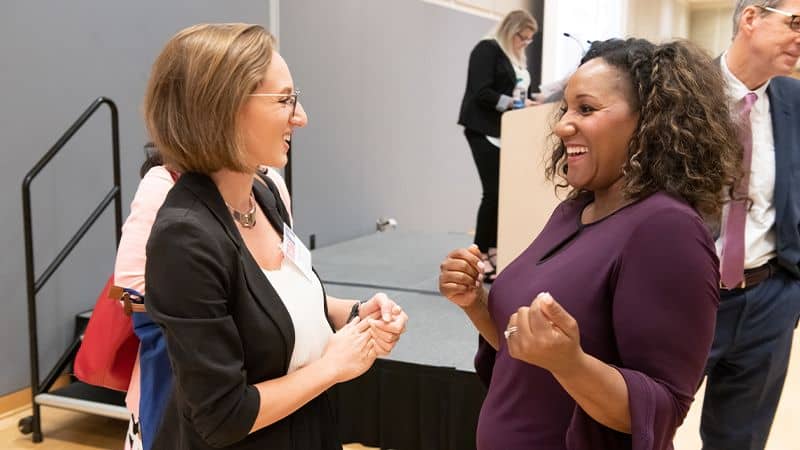
Weekly guest lectures give you a chance to learn, question, and often, exchange business cards with distinguished government relations professionals and policy experts on major issues in business and free enterprise.
These lectures are designed to complement what you are learning in your classes and internship. Covering a wide variety of topics, the events are lively, interactive, and challenging.
Sample guest lecture topics and speakers have included:
- The ABC’s of Lobbying: Brian Donahue, American Cancer Society
- Corporate Cronyism: Tim Carney , The Washington Examiner
- An Industry Deep Dive: Julie Alsup, International Paper
- From Lobbying to Presidential Appointment: Ken Barbic , United States Department of Agriculture
- Trade Briefing: Shihoko Goto, The Globalist
- The Chilean Experience: Defeating Poverty with Liberty: Jose Pinera, former Chilean Minister of Labor and Social Security
- Welcome to Lobbying: Steve Chaudet, Lockheed Martin
- Governing and Lobbying: Ado Machida, International Stability Operations Association
- Professional Standards & Ethics of Lobbying: Paul Kanitra, Lobbyit.com
- Overview of U.S. Trade Policy: Dao Le, U.S. Department of Commerce
Core Course: The American Presidency (GOVT 308) – 3 Credits
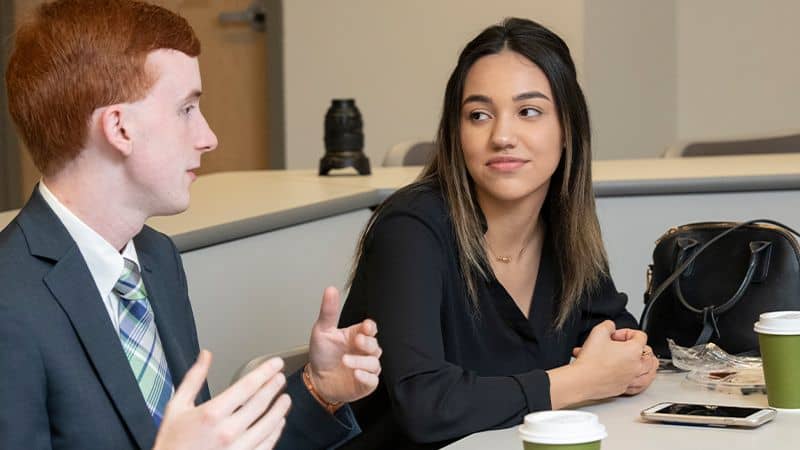
Leadership + the American Presidency summer program track students will be enrolled in GOVT 308.
This course meets on Tuesdays from 4:30 – 7:00pm and Fridays from 9:00 – 11:30am.
“This was a truly unique class experience. The professors were both extremely knowledgeable and very personable. They were some of the most engaging professors I have ever had.”
Austin Gipson-Black, Oklahoma City University
Intern, Washington Parks and People
Course Description
The course is intended for students interested and committed to accelerating their leadership capacity. This course engages students with elements, values, and styles of leadership as seen through examples of American Presidents. Students will: engage in discussion about Presidential leadership style, advance in their leadership journey, explore the paths that Presidents have taken to provide a spark in their own leadership development. Simulations and co-curricular experiences will be employed to emphasize personal action and applicability. Please click here for last summer’s syllabus.
Faculty
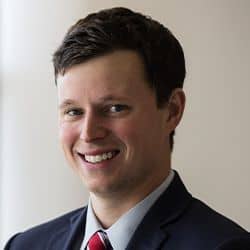
Joshua Walker, APCO Worldwide
Professor, The American Presidency
Dr. Joshua Walker currently serves as the vice president of Global Programs at APCO Worldwide in the Office of the CEO and is also a Transatlantic Fellow at the German Marshall Fund of the United States in Washington, DC.
Prior to the private sector Dr. Walker served in a variety of roles and levels as a senior advisor to the US government. He most recently was at the U.S. Department of State in Secretary Kerry’s Office of the Chief Economist until 2013 and prior to this appointment from 2012 he served in Secretary Clinton’s Global Partnership Initiative as Senior Advisor on the Middle East and North Africa. He has also previously worked for at the U.S. Embassy Ankara, the Turkey Desk of the Bureau of European and Eurasian Affairs at the State Department, and for the Joint Chiefs of Staff at the U.S. Department of Defense. Before his government service, Dr. Walker was an academic and think-tanker bridging the theoretical and policy worlds since his earliest days of growing up in Japan and pursuing a Fulbright fellowship in Turkey.
Dr. Walker serves in a variety of community leadership positions including international boards of civil society and non-profit organizations that promote values closely aligned to his own. He earned his Ph.D. in Politics and Public Policy with a specialization on international relations and security studies at Princeton University. He holds a Master’s degree in International Relations from Yale University, a Bachelor’s degree from the University of Richmond and speaks both Japanese and Turkish fluently.
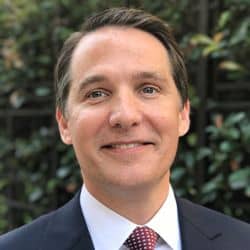
Glenn Nye, Center for the Study of the Presidency + Congress
Professor, The American Presidency
Glenn Nye is the President & CEO of the Center for the Study of the Presidency & Congress (CSPC) in Washington, D.C. CSPC is a nonpartisan think tank aiming to educate future public policy leaders while serving as an honest broker between the White House, Congress and Private Sector.
Nye is a former Member of Congress who bridges the public policy and technology communities. He served Virginia’s Second Congressional District in the U.S. House of Representatives where he distinguished himself as a bipartisan legislator, ranking among the top-10 most independent voting members.
He was a member of the Blue Dog Coalition, a group of centrist, pro-business Democrats. Nye served on the Armed Services, Veterans, and Small Business Committees, chairing the Small Business Subcommittee on Contracting and Technology. He was commended for consistent bipartisan support of a pro-growth economic environment, strong investments in national security, and support of veterans and military families—thus earning the endorsements of the Chamber of Commerce, the NFIB, and the VFW. He championed structural reforms to enhance the effectiveness of government and civility among citizens, including nonpartisan redistricting, and government spending reforms.
After serving in Congress, Nye became an advisor to technology companies, acting as liaison between executives and policymakers in the areas of data analysis and the personal data economy. Nye served as a senior advisor to Palantir Technologies, a leading Silicon Valley data analytics company, and is an advisor at Datacoup, a personal data marketplace company, as well as a member of the board of advisors at FiscalNote, a government relations management software company. He is a member of the board of directors of iMMAP, a data analysis and mapping company serving the international development community. He also provides periodic global market and political risk analysis to financial sector companies.
After graduating from the Georgetown University School of Foreign Service, Nye spent his early career as a U.S. diplomat serving the State Department and USAID in the Balkans, Southeast Asia, Afghanistan and the Middle East. He was recognized with a Superior Honor Award for brokering the release of an American held hostage by insurgents in Macedonia and participated in negotiations for the U.S.-Singapore Free Trade Agreement. He also led economic and political stabilization operations supporting counterinsurgency missions in Afghanistan and Iraq.
Nye continues to enhance understanding between branches of government by lecturing about the behind-the-scenes workings of the U.S. Congress to members of the foreign policy community. He remains active in thought leadership on technology and public policy issues.
Nye is a member of the Congressional Leadership Council of the “Fix the Debt” campaign. Nye has written and led discussions on politics, security, and digital technology issues as a Senior Fellow at the German Marshall Fund of the U.S., a trans-Atlantic think tank.
Summer Optional Elective Courses
Maximize your time in Washington and enroll in 1-2 elective courses in addition to your core class! Choose the course(s) that best fit(s) your academic interests and background. Please note that some elective courses run concurrently, so be sure to review the course schedule before making selections.
Among the elective classes are two internship seminar sections. In addition to a 2-hour class meeting once a week, these courses provide credit for the internship experience through GMU. It is not required to take one of these courses to receive credit for your internship – please check with your home institution for their specific policy.
Course Description
This course is a must for any student wanting to closely examine U.S. foreign policy while they are living and working in the seat of our nation’s government. The discussion-based class provides historical and present-day perspectives on American foreign policy. It will examine how these views will influence the future of American diplomacy and global perception of the Unites States. During the course, students will be engaged in a series of “great episodes” in American foreign policy, aiming at relating them to current problems. The course will also examine national security policy since 9/11. This course is open to all students with an interest in foreign policy or international affairs. Please click here for this last summer’s syllabus.
Faculty

Gary T. Armstrong, William Jewell College
PROFESSOR, U.S. FOREIGN POLICY
Gary T. Armstrong is Professor of Political Science at William Jewell College in Liberty, Missouri. He graduated summa cum laude with at BA from the University of Oklahoma and with a Ph.D. from Georgetown University. He has served as Research Assistant to Francis Fukuyama and Teaching Assistant to former US Secretary of State Madeleine Albright. His areas of specialty include American foreign and security policies, international relations theory, international conflict and war ethics, and international political economy. At William Jewell College, Armstrong served as the Chair of the Political Science Department from 1997-2001 and 2004-2007. He currently serves as the director of the International Relations Major and is Associate Dean of the Core Curriculum. Dr. Armstrong has been voted Professor of the Year by the student body four times during his tenure at William Jewell and is also an alumnus of the TFAS program.
Course Description
This course is the perfect complement to any internship in the nation’s capital – where politics and the federal government are front page news every day. This interactive course will explore the development of the American political tradition from the New England Puritan settlement to the Founding Era and the conclusion of the Civil War. The class will also examine how the role of government has changed, how people’s relationship to the government has evolved, and what this means for the future. Students will discuss the many ways in which Enlightenment liberalism developed alongside alternatives such as classical republicanism and Christianity. Students will explore these contradictory impulses in American political culture and discuss ways that they can be reconciled. Please click here for last summer’s syllabus.
Faculty

Richard Boyd, Georgetown University
PROFESSOR, AMERICAN POLITICAL THOUGHT
Richard Boyd is an associate professor of government at Georgetown University. His research interests include the intellectual history of liberalism, civil society and pluralism, economic and sociological theory, post-colonialism, and the theory and practice of immigration and citizenship policies in the United States. Before coming to Georgetown in 2007, Boyd taught at the University of Chicago, University of Pennsylvania, University of Wisconsin-Madison, and Deep Springs College.
Boyd is author of Uncivil Society: The Perils of Pluralism and the Making of Modern Liberalism. His articles have appeared in Review of Politics, Journal of Politics, Political Theory, History of Political Thought, Polity, European Journal of Political Theory, Urban Studies, Social Philosophy & Policy, and other journals. He is currently completing a book-length manuscript titled “Membership and Belonging: On the Boundaries of Liberal Political Theory.”
Course Description
Identified by some alumni as “the best college course they ever took,” this course is team-taught by professionals who specialize in the relationship between business and personal ethics. The course involves a hands-on learning process, including group activities, to demonstrate how power is defined in the professional world and how individual beliefs apply. Students work on creative team projects to analyze their moral beliefs and how they apply in the workplace. The course includes a two-day workshop designed to help students make the coursework personally meaningful and discover sources of their own empowerment through games and power exercises. Please click here for last summer’s syllabus.
Faculty

Michael J. Collins, Georgetown University
PROFESSOR, ETHICS + LEADERSHIP
Dr. Collins began his tenure at Georgetown University in August 1981 as Dean of the School for Summer and Continuing Education. As Dean, Dr. Collins was responsible for administering the graduate and undergraduate courses offered each summer at Georgetown and locations abroad. He was also responsible for the various academic and residential programs at Villa Le Balze, Georgetown’s study center in Fiesole, Italy, and, for several years, the Office of International Programs.
In 2003, Dr. Collins was appointed Distinguished Professor in the Department of English and Dean Emeritus. He teaches courses on such subjects such as Shakespeare, the American Idea, and Modern British Theater in Georgetown College and the Liberal Studies Program. He also continues his responsibilities for the Villa Le Balze. He lectures frequently in American studies and on Shakespeare in performance, and he co-directs the annual alumni study tour to Florence and Assisi. He has published many articles on Shakespeare, modern poetry, and teaching and has edited two collections of essays: Text and Teaching (with Francis J. Ambrosio) and Shakespeare’s Sweet Thunder: Essays on the Early Comedies. Collins earned a Ph.D. (1973) and M.A. (1964) from New York University and a B.S. degree from Fordham College (1963). He served as a Captain in the United States Army from 1965 to 1968.
Course Description
Students will meet once a week for an interactive seminar that will examine the practical side of the workplace. Led by a former Congressional Chief of Staff and senior advisor at the Department of Labor, this course will explore current policy issues affecting professionals working in your field. High level guest speakers will cover pressing issues such as national security, Supreme Court cases and pending federal legislation. Students have priority access to professional development trainings that are designed to give you the tools to succeed in today’s workplace. The seminar is a graded course that incorporates required readings, written assignments, tests/quizzes, and group projects. All students are eligible to enroll in this optional course; enrollment is not required to participate in the program or an internship. Please click here for last summer’s syllabus.
Faculty

Karen Czarnecki, George Mason School of Law
PROFESSOR, INTERNSHIP SEMINAR – PUBLIC POLICY + INTERNATIONAL AFFAIRS
Karen M. Czarnecki currently serves as the director of education at the Law and Economics Center at George Mason School of Law. Previously she served as the Chief of Staff to Rep. Mike Kelly and as a senior advisor to U.S. Secretary of Labor Elaine L. Chao. She joined the Labor Department in June of 2001, and in June 2003 she was appointed Director of the Office of the 21st Century Workforce. In addition, she served as Deputy Assistant Secretary of Labor for Intergovernmental Affairs, giving her responsibility for outreach to state and locally-elected officials. Czarnecki received her BA and juris doctorate degrees from Catholic University of America and is also an alumna of the Public Policy and Economics program.
Course Description
Students will meet once a week for an interactive seminar that will examine the media’s relationship to politics in the nation’s capital. Led by the founding White House correspondent for USA Today, this course will analyze current legal and ethical issues facing journalists and the people they report on. Students will discuss coverage of election campaigns and government institutions, primarily the presidency and Congress. Students have priority access to professional development trainings that are designed to give you the tools to succeed in today’s workplace. The seminar is a graded course that incorporates required readings, written assignments, tests/quizzes, and group projects. All students are eligible to enroll in this optional course; enrollment is not required to participate in the program or an internship. Please click here for last summer’s syllabus.
Faculty

Richard Benedetto, American University
PROFESSOR, INTERNSHIP SEMINAR – POLITICS AND THE PRESS
Richard Benedetto was the White House and national political correspondent for USA TODAY as well as a political columnist for Gannett News Service. He has reported on government and politics on the local, state and national levels for the past 34 years.
As a native of Utica, N.Y., Benedetto began his journalism career with the Buffalo, (N.Y.) Evening News, and held government reporting positions with the Utica Daily Press and Observer-Dispatch.
He also worked in the Albany bureau of Gannett News Service, covering state and government politics during the Governor Hugh Carey administration. He is a founding member of USA TODAY, joining the newspaper in Washington, D.C. in 1982, prior to its debut. He wrote the paper’s first front-page cover story on its initial day of publication. USA TODAY is now the nation’s largest newspaper. In addition to reporting on the White House and national politics, he writes a weekly political column for the Gannett News Service which serves the Gannett Company Inc.’s 102 daily newspapers. The column also appears on the USATODAY.com website.
He has covered the administrations of Ronald Reagan, George H. W. Bush, Bill Clinton and George W. Bush. He also has covered the presidential campaigns of 1984, 1988, 1992, 1996, 2000 and 2004.
Guest Lectures
Guest lectures give you a chance to learn, question, and often, exchange business cards with distinguished policy experts and leaders.
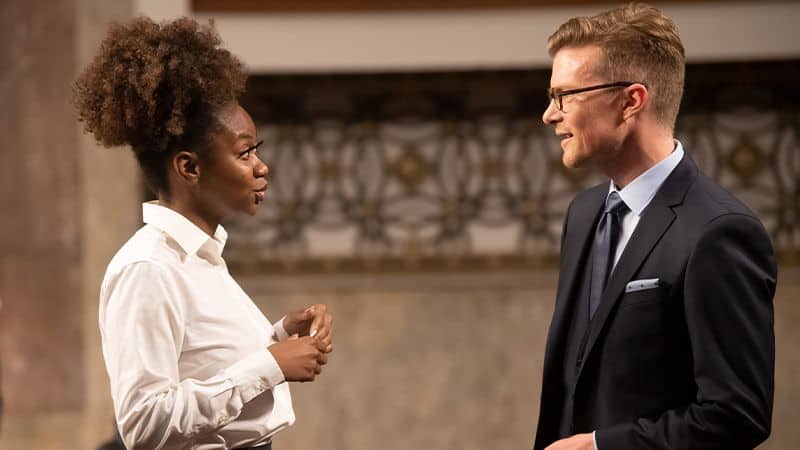
These lectures are designed to complement what you are learning in your classes and internship. Covering a wide variety of topics, the events are lively, interactive, and challenging.
Past guest lectures have included:
- Karith Foster, Humorist, Author and Motivational Speaker
- Tim Shriver, Chairman of the Special Olympics
- Across the Aisle: Featuring U.S. Rep. Salud Carbajal (D-CA) and U.S. Rep. Mike Gallagher (R-WI)
- Dr. John Ragosta, Historian, Robert H. Smith International Center for Jefferson Studies at Monticello
- Jose Pinera, former Chilean Minister of Labor and Social Security
- Mr. Steven Olikara, Founder and President, Millennial Action Project
- Stuart McLaurin, President, White House Historical Association
- Tackling National Debt + the Federal Deficit Debate: Seth Hanlon, Center for American Progress + John Tamny, FreedomWorks
- Dr. Nancy Thomas, Institute for Democracy & Higher Education
- Dr. Brian Douglas Steele, James C. Rees Fellowship on the Leadership of George Washington + Assistant Professor, University of Alabama at Birmingham
Fall + Spring Courses
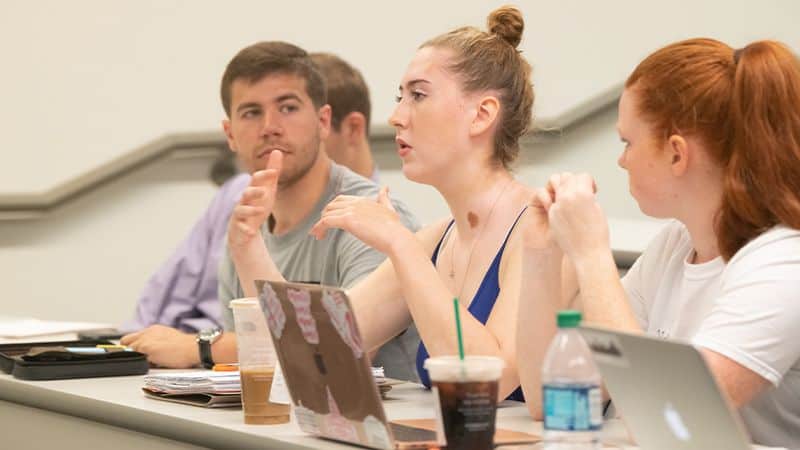
Capital Semester students take 3 classes for a total of 12 credits.
The only class that varies from fall to spring semester is the government course.
Fall students will take The American Presidency (GOVT 308) and spring students will take American Political Thought (GOVT 420).
Course Descriptions, sample syllabi and faculty bios are provided below.
Course Description
This course focuses on international economic policy using standard tools of economic analysis and case studies. Students will examine how economic institutions, property rights, and the operation of markets differ across countries. The primary focus will be on economic and political changes that have occurred in Africa, Asia, Eastern Europe, Western Europe, South American, and the United States during the past 30 years. Students will explore the reasons why some economic policies encourage trade and growth between countries and other policies reduce economic activity. The course will draw on historical examples to illustrate different incentives and how they affect income, poverty, trade, and political stability. Please click here for a sample syllabus.
Faculty
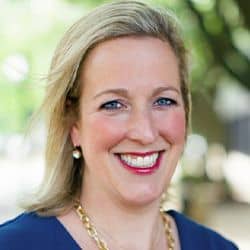
Anne Bradley, The Fund for American Studies
Professor, International Economic Policy
Dr. Anne Rathbone Bradley is the George and Sally Mayer Fellow for Economic Education and the academic director at The Fund for American Studies. Through this position, Dr. Bradley works to enhance the impact and reach of TFAS economic education programs through courses, seminars, videos and social media. She also delivers lectures around the country and oversees curriculum development and evaluation for economics courses.
Previously, Dr. Bradley served as the vice president of economic initiatives at the Institute for Faith, Work & Economics, where she continues research toward a systematic biblical theology of economic freedom. In addition to her work with TFAS, she is a professor of economics at The Institute for World Politics and Grove City College. She is a visiting professor at George Mason University and has previously taught at Georgetown University and Charles University in Prague. She is currently an Acton Affiliate scholar and a visiting scholar at the Bernard Center for Women, Politics & Public Policy. She is a lecturer for the Institute for Humane Studies and the Foundation for Economic Education.
Course Description
This course is the perfect complement to any internship in the nation’s capital – where politics and the federal government are front page news every day. This interactive course will explore the development of the American political tradition from the New England Puritan settlement to the Founding Era and the conclusion of the Civil War. The class will also examine how the role of government has changed, how people’s relationship to the government has evolved, and what this means for the future. Students will discuss the many ways in which Enlightenment liberalism developed alongside alternatives such as classical republicanism and Christianity. Students will explore these contradictory impulses in American political culture and discuss ways that they can be reconciled. Please click here for the current syllabus.
Faculty

Richard Boyd, Georgetown University
Professor, American Political Thought
Richard Boyd is an associate professor of government at Georgetown University. His research interests include the intellectual history of liberalism, civil society and pluralism, economic and sociological theory, post-colonialism, and the theory and practice of immigration and citizenship policies in the United States. Before coming to Georgetown in 2007, Boyd taught at the University of Chicago, University of Pennsylvania, University of Wisconsin-Madison, and Deep Springs College.
Boyd is author of Uncivil Society: The Perils of Pluralism and the Making of Modern Liberalism. His articles have appeared in Review of Politics, Journal of Politics, Political Theory, History of Political Thought, Polity, European Journal of Political Theory, Urban Studies, Social Philosophy & Policy, and other journals. He is currently completing a book-length manuscript titled “Membership and Belonging: On the Boundaries of Liberal Political Theory.”
Course Description
The course is intended for students interested and committed to accelerating their leadership capacity. This course engages students with elements, values, and styles of leadership as seen through examples of American Presidents. Students will: engage in discussion about Presidential leadership style, advance in their leadership journey, explore the paths that Presidents have taken to provide a spark in their own leadership development. Simulations and co-curricular experiences will be employed to emphasize personal action and applicability. Please click here for a sample syllabus.
Faculty

Joshua Walker, APCO Worldwide
Professor, The American Presidency
Dr. Joshua Walker currently serves as the vice president of Global Programs at APCO Worldwide in the Office of the CEO and is also a Transatlantic Fellow at the German Marshall Fund of the United States in Washington, DC.
Prior to the private sector Dr. Walker served in a variety of roles and levels as a senior advisor to the US government. He most recently was at the U.S. Department of State in Secretary Kerry’s Office of the Chief Economist until 2013 and prior to this appointment from 2012 he served in Secretary Clinton’s Global Partnership Initiative as Senior Advisor on the Middle East and North Africa. He has also previously worked for at the U.S. Embassy Ankara, the Turkey Desk of the Bureau of European and Eurasian Affairs at the State Department, and for the Joint Chiefs of Staff at the U.S. Department of Defense. Before his government service, Dr. Walker was an academic and think-tanker bridging the theoretical and policy worlds since his earliest days of growing up in Japan and pursuing a Fulbright fellowship in Turkey.
Dr. Walker serves in a variety of community leadership positions including international boards of civil society and non-profit organizations that promote values closely aligned to his own. He earned his Ph.D. in Politics and Public Policy with a specialization on international relations and security studies at Princeton University. He holds a Master’s degree in International Relations from Yale University, a Bachelor’s degree from the University of Richmond and speaks both Japanese and Turkish fluently.

Glenn Nye, Center for the Study of the Presidency + Congress
Professor, The American Presidency
Glenn Nye is the President & CEO of the Center for the Study of the Presidency & Congress (CSPC) in Washington, D.C. CSPC is a nonpartisan think tank aiming to educate future public policy leaders while serving as an honest broker between the White House, Congress and Private Sector.
Nye is a former Member of Congress who bridges the public policy and technology communities. He served Virginia’s Second Congressional District in the U.S. House of Representatives where he distinguished himself as a bipartisan legislator, ranking among the top-10 most independent voting members.
He was a member of the Blue Dog Coalition, a group of centrist, pro-business Democrats. Nye served on the Armed Services, Veterans, and Small Business Committees, chairing the Small Business Subcommittee on Contracting and Technology. He was commended for consistent bipartisan support of a pro-growth economic environment, strong investments in national security, and support of veterans and military families—thus earning the endorsements of the Chamber of Commerce, the NFIB, and the VFW. He championed structural reforms to enhance the effectiveness of government and civility among citizens, including nonpartisan redistricting, and government spending reforms.
After serving in Congress, Nye became an advisor to technology companies, acting as liaison between executives and policymakers in the areas of data analysis and the personal data economy. Nye served as a senior advisor to Palantir Technologies, a leading Silicon Valley data analytics company, and is an advisor at Datacoup, a personal data marketplace company, as well as a member of the board of advisors at FiscalNote, a government relations management software company. He is a member of the board of directors of iMMAP, a data analysis and mapping company serving the international development community. He also provides periodic global market and political risk analysis to financial sector companies.
After graduating from the Georgetown University School of Foreign Service, Nye spent his early career as a U.S. diplomat serving the State Department and USAID in the Balkans, Southeast Asia, Afghanistan and the Middle East. He was recognized with a Superior Honor Award for brokering the release of an American held hostage by insurgents in Macedonia and participated in negotiations for the U.S.-Singapore Free Trade Agreement. He also led economic and political stabilization operations supporting counterinsurgency missions in Afghanistan and Iraq.
Nye continues to enhance understanding between branches of government by lecturing about the behind-the-scenes workings of the U.S. Congress to members of the foreign policy community. He remains active in thought leadership on technology and public policy issues.
Nye is a member of the Congressional Leadership Council of the “Fix the Debt” campaign. Nye has written and led discussions on politics, security, and digital technology issues as a Senior Fellow at the German Marshall Fund of the U.S., a trans-Atlantic think tank.
Course Description
The internship seminar offers a structured environment in which to reflect on internship experiences, and discuss assigned readings to explore “How Washington Works” from an insider’s perspective as well as the role the media plays in covering public policy issues. Observing Washington in action makes clear that politics in real life often differs from how it is portrayed in textbooks. This seminar is team-taught by the founding editor and first White House correspondent for USA Today as well as a former Congressional Chief of Staff and senior advisor at the Department of Labor. High level guest speakers will cover pressing issues such as national security, cases before the Supreme Court, political campaigns and pending federal legislation.
The course will be taught in two parts. Please click here for part one’s sample syllabus. Please click here for part two’s sample syllabus.
Faculty

Karen M. Czarnecki, George Mason School of Law
Professor, Internship Seminar – Public Policy and International Affairs
Karen M. Czarnecki currently serves as the director of education at the Law and Economics Center at George Mason School of Law. Previously she served as the Chief of Staff to Rep. Mike Kelly and as a senior advisor to U.S. Secretary of Labor Elaine L. Chao. She joined the Labor Department in June of 2001, and in June 2003 she was appointed Director of the Office of the 21st Century Workforce. In addition, she served as Deputy Assistant Secretary of Labor for Intergovernmental Affairs, giving her responsibility for outreach to state and locally-elected officials. Czarnecki received her BA and juris doctorate degrees from Catholic University of America and is also an alumna of the Public Policy and Economics program.

Richard Benedetto, American University
Professor, Internship Seminar – Politics and the Press
Richard Benedetto was the White House and national political correspondent for USA TODAY as well as a political columnist for Gannett News Service. He has reported on government and politics on the local, state and national levels for the past 34 years.
As a native of Utica, N.Y., Benedetto began his journalism career with the Buffalo, (N.Y.) Evening News, and held government reporting positions with the Utica Daily Press and Observer-Dispatch.
He also worked in the Albany bureau of Gannett News Service, covering state and government politics during the Governor Hugh Carey administration. He is a founding member of USA TODAY, joining the newspaper in Washington, D.C. in 1982, prior to its debut. He wrote the paper’s first front-page cover story on its initial day of publication. USA TODAY is now the nation’s largest newspaper. In addition to reporting on the White House and national politics, he writes a weekly political column for the Gannett News Service which serves the Gannett Company Inc.’s 102 daily newspapers. The column also appears on the USATODAY.com website.
He has covered the administrations of Ronald Reagan, George H. W. Bush, Bill Clinton and George W. Bush. He also has covered the presidential campaigns of 1984, 1988, 1992, 1996, 2000 and 2004.
“My professors were engaging and the classes fostered open discussion. My classmates came from many different backgroups and political ideologies, which led to lively debates. It was rewarding to engage in these difficult, important conversations and be exposed to many new perspectives. I particularly enjoyoed my course on economics, in which we applied the economic way of thinking to very salient policy issues, inlcuding terrorism, the war on drugs, and foreign intervention. Because of the course, I have become well-versed in current policy issues and the complexities that surround them.”
Laura Gale, Creighton University
Intern, National Foundation for Credit Counseling
Guest Lectures
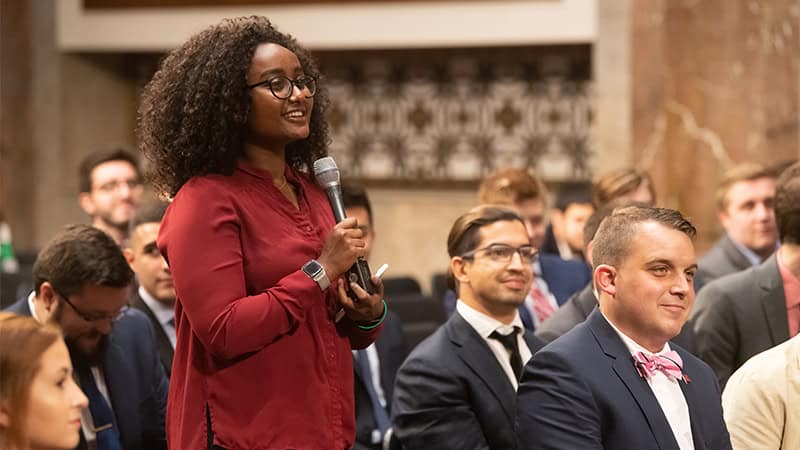
Guest lectures give you a chance to learn, question, and often, exchange business cards with some of the best foreign and public policy experts, as well as presidential scholars in DC.
These lectures are designed to complement what you are learning in your classes and internship. Covering a wide variety of topics, the events are lively, interactive, and challenging.
- The ABC’s of Lobbying: Brian Donohue, American Cancer Society
- Judicial Nominations and the Supreme Court: Tom Jipping, Heritage Foundation
- Military Strategy in Eastern Asia: Eric Gomez, Cato Institute
- “What can we each do to heal our divided society?”: Chris Ullman, Ullman Communications
- Q+A with: Former Speaker of the House Paul Ryan
- Reception with current White House Fellows